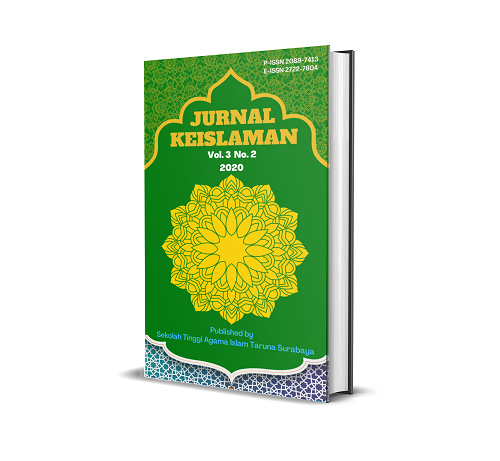Puncak Prestasi Thariqah Mutakallimin Perspektif Pakhruddin ar-Razi
Abstract
Fakhruddin ar-Razi is a great scholar who has mastered various branches of knowledge, especially Islamic sciences. In almost every branch of knowledge he studied, he wrote one or more works, some of which were the main references, such as the book al-Mahshul fi ʻIm al-Ushul and Tafsir al-Kabir Mafatih al-Ghaib. Even though he was a follower and defender of the Syafi'i school in the field of fiqh and Asy'ari in the field of kalam, his broad and deep mastery of knowledge and critical thinking about various sciences actually showed his capabilities as a mujtahid.His main work in the field of ushul fiqh, namely al-Mahshul, is the best work that collects four baboon books in the field of ushul fiqh thariqah mutakallimin from his predecessors. He succeeded in presenting ushul fiqh more comprehensively than had been done by his predecessors, including Imam asy-Shafi'i himself. Its analytical-critical descriptions provide depth of understanding of the various matters discussed in the book. Although his work is seen as the result of a merger of the four previous ushul fiqh books, his analyzes and some of his opinions show the independence and originality of the author's thoughtsCopyright (c) 2020 Nasiri Nasiri

This work is licensed under a Creative Commons Attribution-ShareAlike 4.0 International License.
Authors who publish with this journal agree to the following terms:
- Authors retain copyright and grant the journal right of first publication with the work simultaneously licensed under a Creative Commons Attribution-ShareAlike that allows others to share the work with an acknowledgement of the work's authorship and initial publication in this journal.
- Authors are able to enter into separate, additional contractual arrangements for the non-exclusive distribution of the journal's published version of the work (e.g., post it to an institutional repository or publish it in a book), with an acknowledgement of its initial publication in this journal.
- Authors are permitted and encouraged to post their work online (e.g., in institutional repositories or on their website) prior to and during the submission process, as it can lead to productive exchanges, as well as earlier and greater citation of published work (See The Effect of Open Access).






















